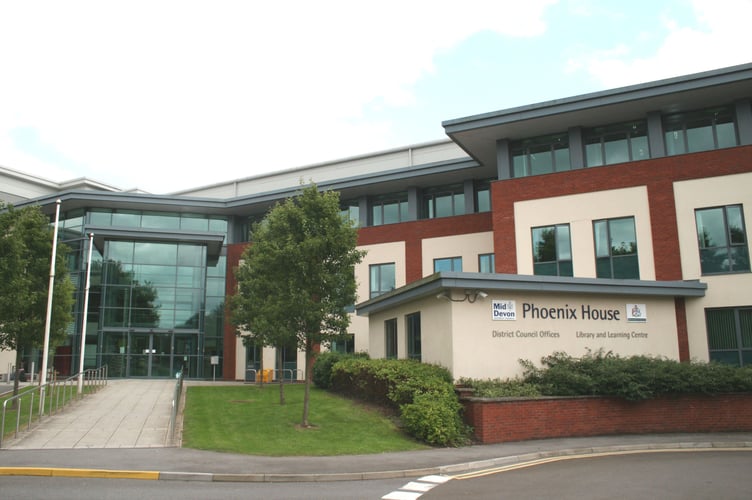NEARLY £4 million in extra income or savings may need to be found by Mid Devon District Council over the next four years.
The figure is the cumulative gap predicted by the council’s finance bosses if action isn’t taken.
The medium-term financial plan (MTFP), which aims to predict the authority’s financial fitness, currently extends to the 2028/29 financial year, and as well as the total figure, it also provides annual data.
For next financial year, which begins in April, the council expects a £1.2 million shortfall in its general budget.
It expects it to cost more than £15 million to provide its services but receives just under £13.7 million.
However, if it takes action, the budget shortfall drops to £390,000.
The deficit figures relate to the council’s general fund, and do not include money linked to housing, which is ring-fenced.
The council has a general fund reserve of just over £2 million, and in its current financial year predicts a £350,000 underspend, which could be added into this rainy-day fund.
Council officers have proposed ways for it to earn more money or to save costs, and these will be debated by councillors in the coming months.
One document covering options for various parts of the council lists 54 ideas, which are coded as “red”, “amber”, and “green” to indicate how difficult they could be to achieve or how impactful they could be on a service.
These include possible areas of extra income, such as an estimate that it could earn £100,000 more on its savings because of higher interest rates, or that it could save £150,000 on its utilities bill.
It could also transfer of assets - and therefore the cost of running them – to towns and parishes to save £60,000, although those councils hadn’t proved that keen so far.
Officers suggest £75,000 could be saved on bed and breakfast accommodation after it bought 11 homes to help residents who need housing.
The council’s finance lead Paul Deal said the plan tried to adhere to certain principles, including not funding ongoing expenditure from one-off resources, and looking to increase income before making cuts.
Mr Deal said it would prioritise higher-priority services or ones that it is obliged to provide.
He added that a major factor in the plan would be the government’s budget planned for the end of October, as this could make a meaningful difference in either direction depending on any decisions about local government financing.
Councillors raised issues, such as whether the £150,000 the authority thought it might spend on apprentices was sensible, but officers and other members noted that there were long-term benefits from training staff.
Others questioned the amount the council spent on computer software –thought to be around £1 million – but Mr Deal said the authority, like others, was “at the mercy of external forces such as inflation”.
He continued: “IT is a significant part of our infrastructure and we need it to operate as a council.”
Bradley Gerrard
LDRS




